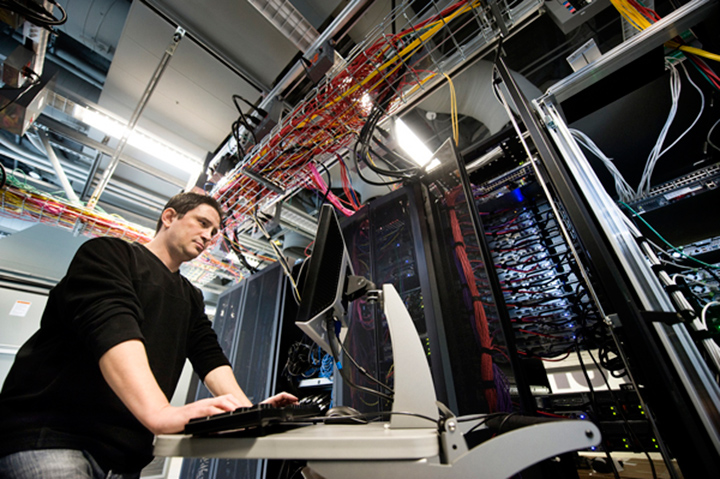 If you’ve ever driven the freeways of Southern California, you might wonder about the metaphor chosen to describe the new high speed, Big Data network announced this week by the University of California, San Diego.
If you’ve ever driven the freeways of Southern California, you might wonder about the metaphor chosen to describe the new high speed, Big Data network announced this week by the University of California, San Diego.
Known as the Prism@UCSD project, the university is building a high performance cyberinfrastructure to support bursts of Big Data between campus facilities housing diverse disciplines – such as science, engineering, medicine and the arts – without killing the main campus network.
With $500,000 in funding from the National Science Foundation (NSF), the UCSD division of the California Institute for Telecommunications and Information Technology (Calit2) is developing Prism specifically to support researchers in such data-intensive scientific areas as genomic sequencing, climate science, electron microscopy, oceanography and physics.
We’ve identified a variety of big data users on this campus who need ten gigabit/s and faster bandwidth to deal with the avalanche of data coming from scientific instruments such as sequencers, microscopes and computing clusters,” said Philip Papadopoulos, principal investigator on the Prism@UCSD project, who splits his time between Calit2 and the university’s San Diego Supercomputer Center (SDSC). “We’re starting at 1 Terabit/s of connected capacity through our next-generation modular switch, which is at the center of the Prism network. It can carry 20 times the traffic of our current research network, and it’s 100 times the bandwidth of the main campus network.”
Adds Papadopoulos, “You can think of Prism as the HOV lane, whereas our very capable campus network represents the slower lanes on the freeway.” Let’s hope he’s talking about the freeway at three in the morning.
Prism@UCSD is a response to the growing challenge of Big Data,” said Calit2 Director Larry Smarr. “The key innovation in Prism@UCSD is to provide end-to-end dedicated large bandwidth to the end-users on campus.”
And he too invokes the freeway metaphor: “The Prism Big Data network also creates a high-capacity ‘data freeway’ to campus, national or international networks,” adds Smarr.
A roadway that has an aggregate bandwidth equivalent to over one terabit per second could go a long way to clearing up Southern California’s traffic problems.
Read the Full Story.



